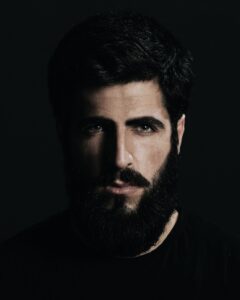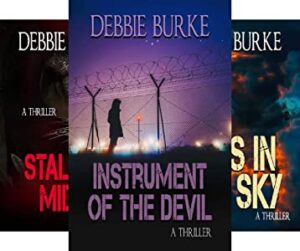“I was as hollow and empty as the spaces between stars.” — Raymond Chandler
By PJ Parrish
I am not feeling hollow or empty today, but damn, I do love that Chandler line. More on him in a moment.
I’ve been doing a lot of reading this past fortnight, of newspapers, websites, scientific journals. It’s the times, I guess. Forcing me to focus more on the tough realities of life rather than the simple rewards of the creative process. Yet…amidst the gloom and doom, I’ve dug up some ores of joy. I hope you don’t mind me sharing a miscellany of writing wisdom today.
A Case For Being Merely Good
Sunday, Jim Bell wrote about inspiring quotes for writers, words that might help us all be better professionals. Sue followed that with inspiring rituals of great writers. So allow me to now offer something for the dilettantes among us. This comes from Kurt Vonnegut, no less.
“When I was 15, I spent a month working on an archeological dig. I was talking to one of the archeologists one day during our lunch break and he asked those kinds of “getting to know you” questions you ask young people: Do you play sports? What’s your favorite subject? And I told him, no I don’t play any sports. I do theater, I’m in choir, I play the violin and piano, I used to take art classes.
And he went WOW. That’s amazing! And I said, “Oh no, but I’m not any good at ANY of them.”
And he said something then that I will never forget and which absolutely blew my mind because no one had ever said anything like it to me before: “I don’t think being good at things is the point of doing them. I think you’ve got all these wonderful experiences with different skills, and that all teaches you things and makes you an interesting person, no matter how well you do them.”
And that honestly changed my life. Because I went from a failure, someone who hadn’t been talented enough at anything to excel, to someone who did things because I enjoyed them. I had been raised in such an achievement-oriented environment, so inundated with the myth of Talent, that I thought it was only worth doing things if you could “Win” at them.”
I just love this. Because here are some things I love that I am pretty good at but not great at: Piano playing, pickleball, cooking, gardening, oil painting, speaking French, juggling. It used to bother me that I did not excel at these things, but Vonnegut was onto something here. Being “good at things” is not the point. Enjoying the ride is. I’m sure all of you have a similar list to mine. And to all of you still struggling with your first attempts at writing, or are feeling, like Vonnegut, “inundated with the myth of talent,” remember to take joy in the process.
Book Sales Soar
News we can use! From Publishers Weekly: In the first half of 2020, unit sales of print books surprised many in the industry by posting a 2.9% increase over the same period in 2019 at outlets that report to NPD BookScan, overcoming a slump in sales in early spring following the onset of the Covid-19 pandemic.
Print sales finished 2020 up 8.2% over 2019, and that strong performance continued into 2021, with units jumping 18.5% in the first six months over the comparable period in 2020. With the exception of the juvenile nonfiction category, all the major publishing categories had double-digit sales increases in the first half of the year. Backlist had the strongest gains, up 21.4%, but frontlist sales were also solid, rising 12.4%.
People are reading! And they are buying old books of published authors. I know this for a fact because I got an Amazon royalty check this week for $45.87 and spent it on diet dog food. Seriously, this is good news. YA fiction showed the biggest jump. Click here for full report.
Never Sell Yourself Short
When I was first starting out in the novel biz decades ago, I would accept any gig that came my way. Luncheon speaker for women’s club? I’m there! Book signing at mall craft fair? Count me in! Set up a card table at a street market even though it meant driving four hours one way? No problem! Problem is, there was a problem. I thought that I had to accept every event possible to get the word out about my books. The problem was I wasn’t getting paid for my time, or reimbursed for travel or expenses. The problem was, I didn’t sell that many books. The problem was, I was exhausted, cannibalizing myself — my limited energy and TIME — and getting very little in return.
This sad history came back to me this week via a thread on an author-friend’s Facebook page. Louis Baynard asked the hive whether it was worth it to accept most invitations to sign or promote books. Most the published authors said the line they heard most was: “The exposure will be good for you.” To which I wrote, nuts to that. It was my good friend Elaine Viets who set me straight and said that any organization that wanted to book me as a lunch speaker had to buy X-copies of my book and include it in the price the attendees paid. I took her advice and it worked. And I also learned how to gracefully say no. Got more writing done and was happier for it. So, those of you just starting out, I advise this: Say yes to libraries because they will shelf your books. Say yes to indie bookstores because they will hand sell you. Say no to everyone who wants to pay you in “exposure.”
Don’t believe me? Well, listen to Harlan Ellison. Warning: The language gets a little…blue.
I Wanted To Be A Literary Novelist But I Realized I Liked Plot.
Jean Hanff Korelitz was exhausted by wrestling with the second draft of a novel that was refusing to come together. She was nervous about a meeting with her editor, who had already turned the book down once. At the meeting, an idea for a thriller popped into her head and that was the beginning of a new writing life, complete with a blurb from Stephen King. Not sure how I feel about this one. You tell me! Click here.
From Chandler With Love
A couple day ago was the 133rd anniversary of the birth of Raymond Chandler, patron saint of Los Angeles noir and perhaps the most famous crime fiction writer of all time. I came very late in life to Chandler, well after I had begun my own crime fiction journey. Probably just as well that I didn’t read him early on or I would have said, “screw this” and been content to take Vonnegut’s advice and be an unpublished bad poet. But darn, Chandler’s stuff just dances.
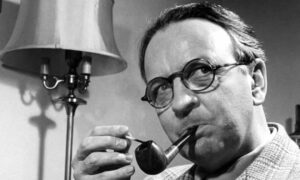
Over at Literary Hub, Dan Sheehan went through Chandler’s nine books and pulled out some of his most iconic lines. Just a sampler:
From The Big Sleep:
- Dead men are heavier than broken hearts.
- It seemed like a nice neighborhood to have bad habits in.
- I been shaking two nickels together for a month, trying to get them to mate.
From Farewell My Lovely:
- It was a blonde. A blonde to make a bishop kick a hole in a stained-glass window.
- She gave me a smile I could feel in my hip pocket.
- The coffee shop smell was strong enough to build a garage on.
Click here to read more. You won’t regret it. Or, if you’re in the middle of wrestling your WIP to the mat, maybe you will.
And Just So You Won’t Feel Alone…
I leave you with a TikTok tidbit from another Facebook writer friend Jon Merz. Turn on your sound. You’re going to like his take on “What It’s Like Writing A Novel.” Although I do think Hendricks is far superior to Sapphire gin when things are going south.
https://www.tiktok.com/@jonfmerz/video/6985531684963798278?lang=en&is_copy_url=1&is_from_webapp=v1

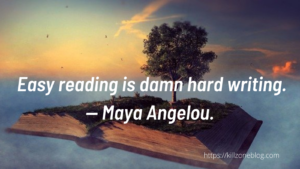 I always write to music, but a problem arose recently that made me question my writing ritual.
I always write to music, but a problem arose recently that made me question my writing ritual.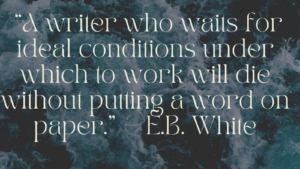 By switching to Pandora, not knowing what song would play or when, my brain couldn’t interpret the music as white noise.
By switching to Pandora, not knowing what song would play or when, my brain couldn’t interpret the music as white noise.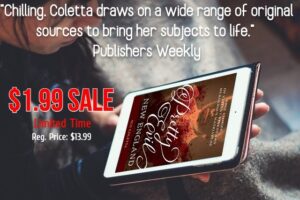
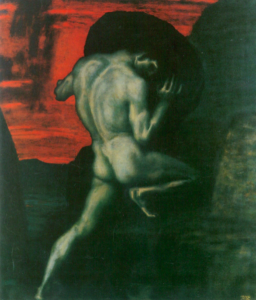




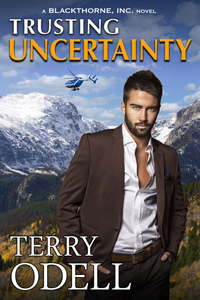
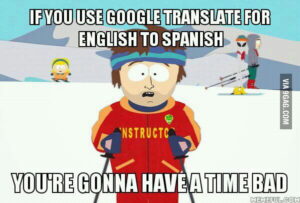 [Side note: English is a particularly difficult language for non-native speakers to learn because it’s full of inconsistencies and contradictory rules. If you didn’t learn English as a first language, please accept my condolences for the misery you’re going through.]
[Side note: English is a particularly difficult language for non-native speakers to learn because it’s full of inconsistencies and contradictory rules. If you didn’t learn English as a first language, please accept my condolences for the misery you’re going through.]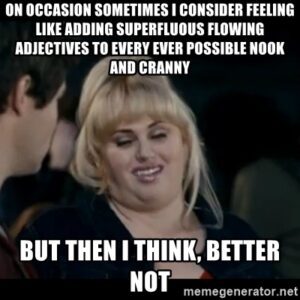
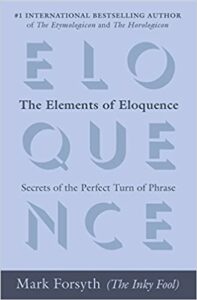 Recently I learned that new lesson when TKZ regular Chuck sent me an interesting article that quotes
Recently I learned that new lesson when TKZ regular Chuck sent me an interesting article that quotes 